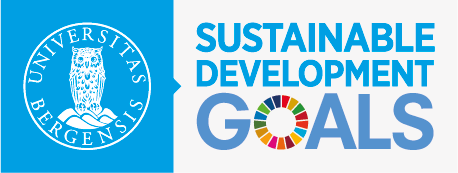Researchers challenge Norway’s climate policy at COP24
Norway’s Minister of Climate and Environment Ola Elvestuen meets with researchers, Pacific island representatives and civil society at the COP24 summit in Poland for dialogue on Arctic-Pacific climate conditions, with a particular focus on SDG13 and SDG14. Follow the side-event live from 13.15!
Teaser COP24
Main content
At the United Nations initiated COP24 conference in Katowice, Poland in the two first weeks of December 2018, there is a number of side events taking on issues beyond the debate in the general conference.
One of the more exciting events taking place at COP24 is Norway's official side event, a collaboration between Norway's Ministry of Foreign Affairs with the University of Bergen (UiB), the Bjerknes Centre for Climate Research, and the University of the South Pacific (USP).
Delegates from more than 200 countries are gathered in Katowice to discuss the implementation of the climate goals in the Paris Agreement. That agreement has concrete goals, but more decisive action is now required, according to many, not the least by climate researchers on the frontline of climate change.
From the Arctic to the Pacific
In the Arctic, ice on land and at sea is rapidly decreasing. In the Pacific, island nations are threatened by sea level rise. For people in the tropics and in the Arctic, climate change is real and close. In many ways, these two regions are the frontlines of climate change.
This official COP24 side event, From the Arctic to the Pacific Ocean and Climate Connections, takes in the discussion on the growing importance of ocean, climate and cryosphere interactions – to discuss climate change across the Arctic-Pacific connection.
The discussion will focus on the growing importance of interactions between the ocean, the climate and the cryosphere (ice and snow cover). In the side event there will be questions on how these interactions influence environments, countries and economies worldwide: how do these processes influence the ability of states to meet the Sustainable Development Goals of the 2030 Agenda?
Ocean nations unity globally
For ocean states like the Pacific Islands and Norway, accelerating processes that cause increased ocean temperatures, sea level rise, and intensified ocean acidification tap directly into the interface of SDG14 (Life Below Water) and SDG13 (Climate Action). These processes bring unpredictable interactions that in turn influence the human condition, quality of life, and the capacity for ocean stewardship in the context of global blue economy ambitions.
Building on efforts made and lessons learnt during Fiji’s COP23 presidency and co-presidency of the 2017 United Nations Ocean Conference, the side event highlights the importance of science diplomacy to inform policy options in climate change and sustainable development, taking advantage of cutting-edge science. The ’best available science’ principle informs the urgent need for climate action in the context of the COP23 Talanoa Facilitative Dialogue, the IPCC 1.5° Report released in October 2018, the emerging science on the melting of Greenland and Antarctic Ice Sheets and the repercussions for the world’s oceans, and the anticipation of the 2019 release of the IPCC Special Report on Oceans and Cryosphere in a Changing Climate.
Current research and policy initiatives will be presented and discussed with prominent policy makers and leaders in government, universities and civil society.
Speakers at the side event:
Ola Elvestuen, Minister of Climate and Environment, Norway
Cristelle Pratt, Pacific Islands Forum
Taholo Kami, COP23 Presidency
Morgan Wairiu, University of the South Pacific
Tore Furevik, Bjerknes Centre for Climate Research / University of Bergen
Mari Hasle Einang, Norwegian Children and Youth Council
Edvard Hviding, University of Bergen (Moderator)
